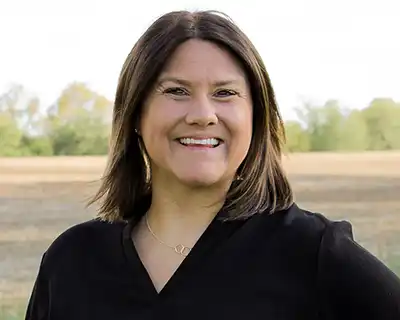Drought and volatile prices bring heightened focus on fertilizer and nutrient management.
One of the greatest agronomic challenges facing producers today is the multi-year drought pattern affecting the Corn Belt, says Mike Zwingman, director of agronomy, row crops for Verdesian Life Sciences.
“The impact of drought is more than just water stress,” Zwingman says. “It greatly impacts nutrient uptake and lowers yield potential after drought stress because the plant misses out on some critical nutrient uptake periods.”
As producers in drought-stricken areas monitor how abiotic stress affects their yields, many are looking for solutions to help manage plant health in dry conditions. Nutrient efficiency and management is a critical component to creating a more resilient production system.
America’s Conservation Ag Movement sat down with Zwingman to get his perspective on nutrient use, the National Corn Yield Contest and the next generation of products to help producers manage emerging pressures on their operations.

Over your two-decade career in agriculture, how has conservation agriculture evolved?
I don’t think conservation farming principles have changed over the past two decades. No-Till has been a common practice my entire career; cover crops have also existed during that time. What has changed is the focus and intensity of those practices. I understand that none of these practices are new, but how to effectively execute them is the most important lesson I have learned.
Why is nutrient use efficiency important for producers right now? What are some of the factors that are spurring interest?
From the grower’s perspective, economics is the biggest driver of Nutrient Use Efficiency (NUE); managing cost of production and yield optimization are two of the most essential things growers can do when prices are so volatile. That is not to say they aren’t worried about conservation issues; often, those things are tied together.
How does nitrogen stabilization and nutrient efficiency fit into your sponsorship of the National Yield Contest’s new Nitrogen Management Class? Why is this new class important for producers?
We are excited to be part of this new class of the National Yield Contest because it so profoundly aligns with the DNA of who Verdesian is. I have been saying for years that we have significantly improved Nitrogen Use Efficiency in my lifetime; the problem is that it may be one of the best-kept secrets in our industry. This contest gives us the platform to show consumers, and the rest of the value chain, how good at it we really are.
How do nutrient optimization strategies help producers tell their story with the value chain and consumers who are increasingly interested in production methods?
It focuses on many things growers already have been doing to improve Nutrient Use Efficiency and allows them to invest in and explore new technologies that accelerate that improvement. At Verdesian, we support those efforts by developing some of those new technologies as well and providing clarity on how they best fit into a producer’s operation.
How does growing production transparency affect the future of agriculture?
Our customers are more separated from agriculture than ever before in history but also have more concern about how their food is produced as well. This paradox allows for a vast stream of misinformation to flood the internet and mind-space of the end user. We have both the responsibility and opportunity to change that by being more transparent and inviting people to see what we do.
In a segment that has some residual efficacy concerns from early bad actors, what are some ways Verdesian has been successfully communicating the value of biological products to producers?
For us, it all starts with explaining exactly how a specific product works either in the soil or in the plant to benefit Nutrient Use Efficiency. That begins with the hard work of the people in our lab to identify modes of action as we go to the field to generate yield data for the grower. We also work extremely hard to get the recommendation on how to use it in the field. We have the right processes in place to allow us to do both those things.
What does the next generation of grower solutions look like, and how is your R&D addressing the challenges growers are facing today and the burgeoning demand for sustainable products?
I am extremely proud of and excited about the products in our pipeline. Soon we plan on having releases in the micronutrient space, phosphorus enhancers category, and some new technology for the planter box. All of those new technologies address stress management and NUE.
Why is it important for Verdesian Life Sciences to be part of coalitions like America’s Conservation Ag Movement and Agriculture’s Clean Water Alliance?
There is no better indicator of what is important to a company’s culture than where it invests its talent, money and other resources. At Verdesian, we are committed to developing new technologies that enhance Nutrient Use Efficiency to benefit the environment, grower sustainability and the end user, because that is who we are.



